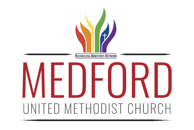
18 Someone might claim, “You have faith and I have action.” But how can I see your faith apart from your actions? Instead, I’ll show you my faith by putting it into practice in faithful action.
Reflection
The history of the Sunday School movement may not be directly associated with Methodism, but some have argued that it would not have happened without Methodist influence. Basically, Sunday School was invented for a very different reason than why it exists today – it was originally a response to childhood illiteracy. Before proper labor laws were in place, children born into poverty were often put to work instead of receiving very basic education which often created a cycle of crime and further poverty. Publisher Robert Raikes saw a solution to this problem by partnering with an Anglican church to create an education program for children. In about 30 years, 500,000 children in the British Isles were attending these classes and it took off around the globe (Britannica).
In her dissertation to the University of Chicago, Adda Grace Wardle argues that Methodism’s focus on social good and education, less than 50 years prior to the first Sunday School program, played a huge role in this. Methodism already had “small groups” for children as active parts of the community and would have faced much of the illiteracy problem that Raikes faced just a little later in the 1700’s, and the high education of clergy made them suitable teachers. John Wesley, the founder of Methodism, himself has journal entries about teaching large groups of children for schooling. Methodist women began running many Sunday School-like programs that would sometimes not only meet on Sunday’s but also later in the week. It would actually be Methodists Sophia Cooke and Rev. Samuel Bradburn who would suggest Sunday School programming to Raikes, who is considered the founder of Sunday School (Wardle).
Why have I gone into research paper mode? Today’s text from James I brought up in both of my first two sermons in our new Methodism sermon series. It’s the idea that when we truly have faith in a loving God, good works just sort of burst out of us. We can’t help but get involved and help others! Both the early Methodist’s and Raikes were starting something new and unheard of – they were investing the time, resources and finances into empowering the next generation to be able to claim their own faith, and it came out of a social call from those trapped in a cycle of poverty – and look how that has transformed the church!
Today, many Sunday School’s are reinventing themselves (we call ours Kid’s Church!) because when it started, it was acting as the primary or only form of schooling for these children. Today, the youth in our context receive a lot of structured schooling and need other forms of learning that include more play and downtime. It is just as important as it was when it first began, but today is answering new and different needs then it originally did.
by Rachel Callender
Bibliography
Britannica, T. Editors of Encyclopaedia. “Sunday school.” Encyclopedia Britannica, February 6, 2009. https://www.britannica.com/topic/Sunday-school.
Addie Grace Wardle, History of the Methodist Movement in the Methodist Episcopal Church, Chicago: The University of Chicago, 1918.
For Pondering & Prayer
Our faith can inspire us to go and do good in the world. Is there something that your faith is calling you to do? What is it? Why haven’t you done it yet? What’s something you can do today to answer this call to putting your faith into action?
Prayer: God of Goodness, inspire us today. Amen.









Comments are closed.